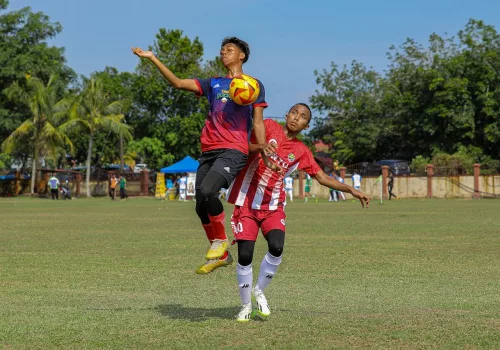Adaptive sports provide an inclusive opportunity for children with mobility issues to engage in physical activity, develop social skills, improve fitness, and build self-confidence. These sports are modified to accommodate the physical needs of participants, ensuring that children of all abilities can enjoy the benefits of sports. Many adaptive sports are tailored specifically for children with mobility challenges, focusing on enhancing strength, coordination, and flexibility while offering a fun and supportive environment.
This article explores 13 adaptive sports that are suitable for children with mobility issues, highlighting their benefits, how they are modified, and why they are ideal for fostering both physical and emotional development.
1. Wheelchair Basketball
Overview
Wheelchair basketball is one of the most popular adaptive sports for children with mobility issues. It offers all the excitement of traditional basketball, but with the added challenge and fun of playing from a wheelchair. The rules are similar to standard basketball, with minor adjustments to account for the use of wheelchairs. Wheelchair basketball is played in teams, and the game promotes teamwork, strategy, and cardiovascular fitness.
Why It’s Suitable
Wheelchair basketball provides an intense physical workout, helping children develop upper body strength, endurance, and coordination. It also enhances hand-eye coordination and encourages social interaction, as it is a team sport that requires communication and collaboration. The game is highly inclusive and can be played by children with varying degrees of mobility limitations.
Benefits
- Improves upper body strength and coordination
- Encourages teamwork and social skills
- Boosts cardiovascular health
2. Adaptive Swimming
Overview
Swimming is a low-impact sport that is highly suitable for children with mobility issues. In adaptive swimming, children can use specialized equipment, such as flotation devices or adaptive swim aids, to assist them in the water. Swimming can be done recreationally or competitively, with various strokes and distances adjusted according to the child’s abilities.
Why It’s Suitable
Water provides natural buoyancy, reducing the strain on joints and allowing children with mobility challenges to move freely. Swimming enhances overall body strength, improves cardiovascular health, and promotes flexibility. It is also a great way to build confidence, as children learn new skills and enjoy the freedom of movement that water provides.
Benefits
- Enhances muscle strength and flexibility
- Promotes cardiovascular fitness
- Reduces impact on joints and muscles
3. Wheelchair Tennis
Overview
Wheelchair tennis adapts traditional tennis for individuals with mobility issues by allowing players to use wheelchairs and giving them up to two bounces of the ball before returning it. The game can be played recreationally or competitively, and it involves the same basic rules as standard tennis, with minor modifications.
Why It’s Suitable
Wheelchair tennis is a fantastic sport for children with mobility challenges because it helps improve upper body strength, agility, and hand-eye coordination. The sport is fast-paced and offers a full-body workout, making it ideal for cardiovascular fitness. It also encourages focus, strategy, and quick reflexes.
Benefits
- Builds upper body strength and coordination
- Improves focus and reaction time
- Provides a cardiovascular workout
4. Adaptive Skiing
Overview
Adaptive skiing allows children with mobility issues to enjoy the thrill of skiing down slopes with the help of specialized equipment such as sit-skis or mono-skis. Instructors provide guidance, and children are equipped with safety gear to ensure they have a safe and enjoyable experience. Adaptive skiing can be done recreationally or competitively.
Why It’s Suitable
Adaptive skiing offers an exhilarating outdoor experience and helps children develop core strength, balance, and coordination. The sport builds confidence as children tackle new challenges, and the adaptive equipment allows for a smooth and safe ride down the slopes.
Benefits
- Enhances core strength and balance
- Boosts confidence through outdoor challenges
- Provides an exciting and adventurous experience
5. Sled Hockey (Sledge Hockey)
Overview
Sled hockey, also known as sledge hockey, is a modified version of ice hockey where players sit on specially designed sleds with blades underneath. Players use two sticks to propel themselves across the ice and control the puck. The rules of sled hockey are similar to those of traditional ice hockey, with minor adjustments for the sleds.
Why It’s Suitable
Sled hockey is highly inclusive, offering children with mobility issues the opportunity to participate in a fast-paced, team-oriented sport. It improves upper body strength, coordination, and agility while fostering teamwork and communication skills. Children experience the excitement of hockey in a supportive environment.
Benefits
- Develops upper body strength and coordination
- Promotes teamwork and communication
- Offers a fast-paced and thrilling experience
6. Handcycling
Overview
Handcycling is an adaptive sport that allows children with mobility issues to ride specially designed cycles powered by their arms rather than their legs. Handcycles come in various models, including recreational and racing versions, and can be used on roads, bike paths, or tracks. Handcycling is both a recreational activity and a competitive sport.
Why It’s Suitable
Handcycling provides a great cardiovascular workout and helps children develop upper body strength and endurance. It is suitable for children with lower-body mobility challenges, as they use their arms to propel the cycle. Handcycling can be enjoyed at any pace, from casual rides to competitive racing, making it a versatile sport for all ability levels.
Benefits
- Improves cardiovascular fitness and endurance
- Builds upper body strength
- Offers a fun and inclusive outdoor activity
7. Boccia
Overview
Boccia is a precision ball sport similar to bocce, specifically designed for individuals with mobility issues. Players aim to throw or roll their ball as close as possible to a target ball (the jack). The sport can be played individually, in pairs, or in teams. It is a Paralympic sport and can be highly competitive or played casually.
Why It’s Suitable
Boccia is an excellent sport for children with mobility issues, as it focuses on strategy, precision, and coordination rather than physical strength. The sport can be easily adapted for children with varying abilities, including those who use assistive devices like ramps or pointers to play. Boccia promotes social interaction, focus, and concentration.
Benefits
- Enhances precision and coordination
- Encourages strategic thinking
- Provides a relaxed yet competitive environment
8. Adaptive Horseback Riding (Therapeutic Riding)
Overview
Adaptive horseback riding, also known as therapeutic riding, involves children with mobility issues riding specially trained horses with the assistance of an instructor. The experience is designed to promote physical, emotional, and cognitive development. The movement of the horse provides a unique therapeutic experience, helping improve balance and muscle control.
Why It’s Suitable
Adaptive horseback riding offers children with mobility issues a gentle and enjoyable way to improve balance, posture, and muscle tone. The sport also promotes emotional well-being, as children bond with the horses and gain confidence through their interactions. Therapeutic riding is suitable for children of various ability levels, making it an inclusive and supportive activity.
Benefits
- Improves balance, posture, and muscle tone
- Promotes emotional well-being and confidence
- Offers a therapeutic and calming experience
9. Para-Track and Field
Overview
Para-track and field is an adaptive version of traditional track and field sports, including running, wheelchair racing, long jump, shot put, and discus. The events are modified to accommodate the athlete’s physical abilities, and participants compete based on classification categories that account for their specific mobility challenges.
Why It’s Suitable
Para-track and field is highly inclusive and allows children with mobility issues to compete in a range of athletic events. The sport promotes physical fitness, cardiovascular endurance, and muscle strength. It also encourages goal-setting and perseverance, as children work towards improving their performance.
Benefits
- Builds strength, endurance, and coordination
- Encourages goal-setting and personal achievement
- Offers a variety of events to suit different abilities
10. Adaptive Archery
Overview
Adaptive archery is a sport that has been modified for individuals with mobility issues by using assistive devices such as bow stands, mouth tabs, or mechanical releases. The sport requires focus, precision, and concentration as participants aim to hit a target from a distance. It can be played recreationally or competitively.
Why It’s Suitable
Adaptive archery is ideal for children with mobility issues because it emphasizes focus and upper body coordination rather than physical movement. The sport can be adapted to the child’s specific abilities, ensuring they can participate comfortably. Archery also helps improve hand-eye coordination, patience, and concentration.
Benefits
- Enhances focus and concentration
- Improves hand-eye coordination
- Can be adapted for a range of abilities
11. Power Soccer
Overview
Power soccer is a modified version of soccer designed for individuals who use power wheelchairs. Players use their wheelchairs to push and control a large soccer ball, aiming to score goals against the opposing team. The game is fast-paced and follows similar rules to traditional soccer, with some adjustments for the power chairs.
Why It’s Suitable
Power soccer is highly inclusive, offering children with mobility issues the chance to participate in a dynamic, team-oriented sport. It helps develop coordination, agility, and strategy as players work together to win the game. Power soccer also fosters a sense of camaraderie and teamwork.
Benefits
- Builds coordination and strategy
- Encourages teamwork and social interaction
- Provides a fast-paced and exciting experience
12. Seated Volleyball
Overview
Seated volleyball is an adaptive version of traditional volleyball played by athletes who sit on the floor while playing. The rules are similar to standard volleyball, but the net is lower, and players must remain seated during play. Seated volleyball can be played competitively or recreationally.
Why It’s Suitable
Seated volleyball helps children with mobility issues develop upper body strength, coordination, and agility. The sport emphasizes teamwork and quick reflexes, making it both physically engaging and mentally stimulating. It’s an excellent option for children who enjoy fast-paced, group-oriented sports.
Benefits
- Enhances upper body strength and coordination
- Promotes teamwork and communication
- Offers a fun, fast-paced activity
13. Adaptive Bowling
Overview
Adaptive bowling is a modified version of traditional bowling that uses assistive devices such as ramps or ball pushers to help children with mobility issues participate. The rules are similar to standard bowling, and children can play individually or in teams.
Why It’s Suitable
Adaptive bowling is inclusive and easy to learn, making it accessible to children with a wide range of mobility challenges. The sport encourages hand-eye coordination, focus, and social interaction. Adaptive equipment ensures that children with various abilities can enjoy the game.
Benefits
- Improves hand-eye coordination and focus
- Encourages social interaction
- Easy to learn and accessible for all abilities
Conclusion
Adaptive sports provide an excellent opportunity for children with mobility issues to engage in physical activity, improve their health, and enjoy social interaction in an inclusive environment. From wheelchair basketball to adaptive swimming, these sports offer benefits that go beyond physical fitness, helping children build confidence, develop new skills, and foster a sense of belonging in their communities. Whether participating recreationally or competitively, children with mobility challenges can thrive in adaptive sports and enjoy all the benefits that come with staying active.





